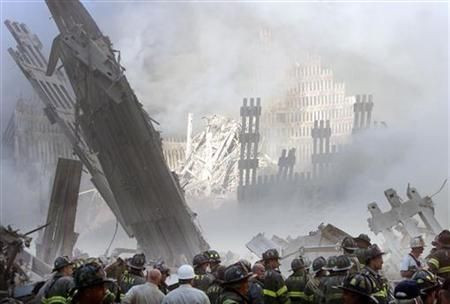1,140 WTC 9/11 Responders Diagnosed With Cancer Since 2001 Attacks Due To Toxins At Ground Zero

With the 12th anniversary of the terrorist acts committed on Sept. 11, 2001 quickly approaching, we're once again forced to realize the magnitude of the devastation that occurred. According to the National Institute for Occupational Safety and Health, 1,140 first responders and people living or working around the World Trade Center at the time of the attacks have been diagnosed with some type of cancer.
“There are more cases out there, because we just know of the people in our government-funded medical programs, not those who have been treated by their private doctors,” Dr. Jim Melius, 9/11 Health Watch board member and chairman of the steering committee for the WTC Responder Medical Program, told the NY Daily News. “Because of the carcinogens in the air at Ground Zero, people who were exposed are vulnerable. And with cancer, there is a delay.”
To many healthcare professionals, this eye-opening statistic doesn't come as much of a shock. A recent study conducted by Mount Sinai Medical Center showed that Ground Zero responders were 15 percent more likely to develop cancer compared to people who were not exposed to cancer-causing chemicals and substances left by the 9/11 attacks.
“It was always in the back of everyone’s mind we were in jeopardy given the contamination down there, but the entire world was calling on you, it felt so good to serve, there was no wanting to escape,” said Marty Cervellione, an engineer with the New York City Design and Construction Department who was diagnosed with gastroesophageal cancer, to the NY Daily News.
A similar study focusing solely on firefighters showed that those stationed at Ground Zero following the attacks were 19 percent more likely to develop cancer compared to firefighters who were not exposed to the hazardous debris.
Some researchers believe that the distinctiveness of the dust and contaminants left by the attacks could be to blame for the broad range of cancer diagnoses after 2001. Compounds related to cancer development, such as asbestos, were said to have lingered in the air at Ground Zero for months.
"Those particulates are not just dust, they are dust coated with the same chemicals that were in the air in terms of the gases, sometimes, actually, getting deeper into the lung or better penetrating into the blood circulation because they're carried on a particle," Dr. David Prezant, a pulmonologist with the New York City Fire Department, told CNN.



























